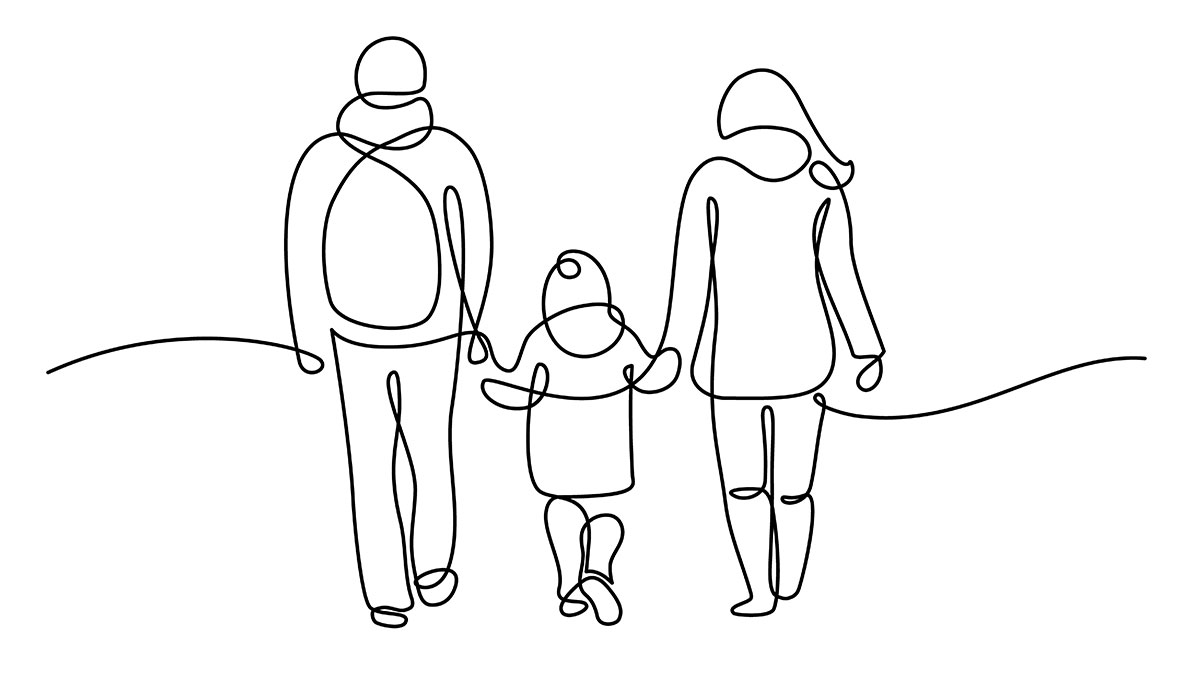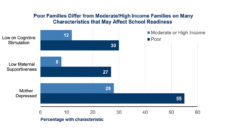That richer and poorer parents raise children differently is well-established, and much attention has been paid to the financial, stress, and structural reasons that account for this difference. Richer parents are more likely to actively manage their children’s learning and development through extracurricular activities, engagement with teachers, and by encouraging their children to question authority. In contrast, working class and poor parents are often thought to value children’s adherence to rules and obedience to authority. This parenting style is also referred to as authoritarian parenting.
Authoritarian parents are more likely to rely on the use of strict discipline and punishment to enforce rules. Spanking, and the idea that children should strictly obey their parents are two central components of authoritarian parenting practices. Authoritarian parenting has been linked to a host of negative outcomes for children including less advanced language skills and reading competence, as well as higher levels of conduct problems and obsessive-compulsive disorder.
But emerging research suggests that the usual measures of socio-economic status – education, income, and occupation – may not fully capture parents’ economic experiences. In fact, it may be that feeling wealthy is quite different from being wealthy and that this difference matters for the above-mentioned differences in parenting. In new research, we look at the role of subjective experiences of economic wellbeing using data from the General Social Survey (a representative survey of American characteristics and attitudes). We ask whether the link between traditional objective measures of socio-economic status and authoritarian parenting differs when we also look to subjective measures of economic wellbeing. In other words, does how someone feels they are doing financially compared to how they actually are doing financially have different implications for parenting?
We also found that differences in parents’ education explains the socio-economic divide in authoritarian parenting even beyond income itself.
We confirmed what many others have also found: Parents at the bottom and middle of the income ladder experience increased odds of endorsing spanking and valuing obedience, compared to those at the highest level of income. We also found that differences in parents’ education explains the socio-economic divide in authoritarian parenting even beyond income itself.
However, we found that subjective experiences of economic well-being are distinct from income and education. Our results show that those who feel least well off are most likely to endorse authoritarian parenting and this finding is not explained by income or education. This likely means that feeling like you are not wealthy is distinct from actual wealth when it comes to parenting. This is concerning at a time when inequality is steadily rising and, as a consequence, an increasing share of parents is likely to feel less well-off when they compare their situation to other families around them.
Most notably, we found that being objectively less well-off and feeling subjectively less well-off were both linked to increased odds of endorsing authoritarian parenting for White parents. This was not true for Black parents. It may be that Black parents with lower levels of education are more able to draw on extended family for support with parenting or making ends meet. It is also possible that socioeconomic status is less closely associated with parenting behaviors for Black parents. It may also be that Black parents have less of an expectation of upward mobility. Recent work, for example, shows that intergenerational economic mobility is lowest in areas with larger African American populations.
Given this baseline of expectations, it is possible, therefore, that parenting in Black families is less likely to be influenced by the context of rising inequality as a result.
The way we parent is shaped by any number of factors – our experiences, our opportunities, our environments, our family, friends, and social networks. Yet, our resources and how we perceive them also seem to play an important role. With economic inequality deeply entrenched in the U.S., this has profound implications for families – both for those who do not have much and for those who simply feel that way because others seem to have so much more than they do.
The views expressed in this article are those of the authors and do not necessarily reflect the official policies of the U.S. Department of Health and Human Services or the Health Resources and Services Administration or imply endorsement by the U.S. government.
Illustration via Getty Images















